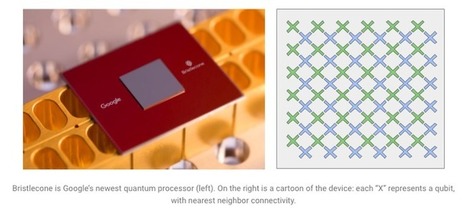A team combining Microsoft researchers and Niels Bohr Institute academics is confident that it has found the key to creating a quantum computer.
If they are right, then Microsoft will leap to the front of a race that has a tremendous prize - the power to solve problems that are beyond conventional computers.
In the lab are a series of white cylinders, which are fridges, cooled almost to absolute zero as part of the process of creating a qubit, the building block of a quantum computer.
"This is colder than deep space, it may be the coldest place in the universe," Prof Charlie Marcus tells me.
The team he leads is working in collaboration with other labs in the Netherlands, Australia and the United States in Microsoft's quantum research programme.
Right now, they are behind in the race - the likes of Google, IBM and a Silicon Valley start-up called Rigetti have already shown they can build systems with as many as 50 qubits. Microsoft has yet to demonstrate - in public at least - that it can build one.
But these scientists are going down a different route from their rivals, trying to create qubits using a subatomic particle, whose existence was first suggested back in the 1930s by an Italian physicist Ettore Majorana.



 Your new post is loading...
Your new post is loading...









Ettore Marjorana was a fascinating Italian physicist whose story could inspire a great movie ; it turns out he might also, 90 years after his hypothesis of a very special particle, bring a significant posthumous contribution to quantum computing...